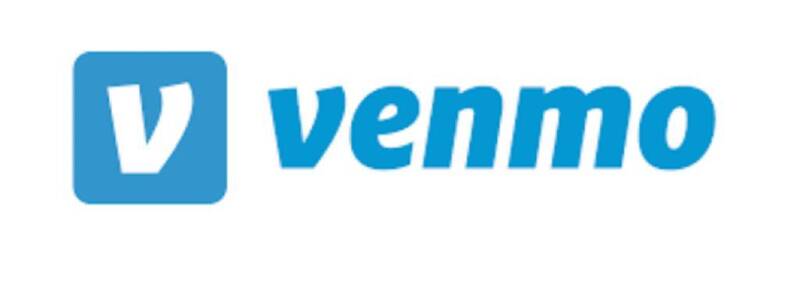11/23/2010
Two weeks ago, the National Insurance Institute in Israel, in cooperation with the Bank of Israel, issued its latest yearly report on poverty.
The numbers are shocking; two of every five children live in poverty, etc.
Many of them are Israeli Arabs most Jewish organizations are not taking care of, another large segment are the large Haredi families, the willfully unemployed, etc.
The report differentiates between the different groups and also acknowledges that there are still thousands of working poor families, families with one or two bread winners who simply cannot make ends meet, and that the levels of poverty have increased across the board, affecting many other families who are not below poverty but still struggling.
The report also states that poverty among households with at least one wage earner has increased greatly in the last ten years, reflecting two factors. One is the rate of participation of weak sectors of the population in the labor force, and the other is the lack of an appropriate policy, e.g., the enforcement of labor laws, to improve the return to labor for groups with low earning ability.
There are over 7 million people living in Israel, 1,774,800 are considered living below poverty.
Whose responsibility are they? Is it is the State's duty to help them, or is it society and charities? Or is time to make people responsible for themselves?
Bottom line in charity is that while we can blame people for getting themselves into trouble, and also blame government for not doing enough, unless we do something constructive about it, laying the blame doesn't do anyone any good.
It reminds me of the story of a poor beggar who knocked on the door of a very wealthy man begging for some food and a drink of water. The smartly dressed butler was horrified at the site of the disheveled beggar and reprimanded him to clean himself up before coming back to the door as he is too dirty and smelly to be allowed in. With that, he slammed the door and returned to his duties, only to be called back to the door minutes later by a passerby who noticed the now dead and lifeless body of the beggar laying at the doorstep.
If only he would have given him a mere drink of fresh water or a plate of food, whether to be eaten inside or even on the street!
Mr. Gennadiy Bogolubov, co-owner of Privatbank in Ukraine and an international philanthropist was honored two weeks ago at the International Conference of Chabad Shluchim and was their guest speaker. He related his journey in Judaism and how he came close to Chabad. The secret is now out. He was invited by the local Rabbi to visit the Shul, and he was not impressed. The religious aspect of Judaism didn't speak to him, on the contrary, it was a turn off. But after prayers, he noticed 20-30 elder men heading to small room behind the Synagogue and followed them. They were entering a simple yet warm, friendly and appetizing free soup kitchen. He turned to the Rabbi and asked. "Rabbi, how do you know if all these men are truly needy?" to which the Rabbi replied, "Would you go in and eat a meal?, If someone has already come to the point they are willing to go to a public soup kitchen, we don't ask questions!"
The next day he returned and brought $10,000. That was in 1995. Since then, he has given millions to charities all across the world.
That soup kitchen was built and funded by none other than you, the donors to the Global Jewish Assistance & Relief Network. Yes indeed, we were the first international Jewish organization to come to the Former Soviet Union and build free soup kitchens, develop milk and break programs, "meals on wheels" etc. From 1992 - 2002, GJARN provided more than $150,000,000 in emergency food, clothing and medical aid to the poor and needy in the FSU!
Watching the lines of people waiting to receive food parcels or enter our soup kitchens were at times, heart wrenching. On the one hand, we saw truly poor and needy people, it was miraculous they were still alive! Yet, on the other hand, people came in fur coats, some dressed very smartly, and it made we wonder as to why I am investing so much time and money for people who are seemingly living off better than many of my peers and perhaps myself!!!
With time, I realized that these fur coats were passed down from several generations, that the fine looking clothing is but one of two or three articles of clothing that they have, and that is all they have, a little bit of pride left to feel human dignity! It took time to realize that for people to come and take, is already a big deal!
People argued and suggested that certain people's mentality is to take, and that you would be surprised who won't take something for free. After all, when G-d offered the 10 Commandments, most of the nations kindly refused. When he came to the Jews, they asked, "how much" and when G-d replied, it was free, they said, "in that case, give us two" and the rest is history.
But after helping tens, even hundreds of thousands of people, and I dare say, even after helping millions of people, I still believe in the cause.
Have I seen fraud and deceit? Most certainly. There will always be those few who scam the system and make it look bad for all the others?
But if we close our doors and send them all to screening first, they may end up like the dead beggar on the doorstep of the wealthy man!
It is our obligation to help, but we must also look for ways to make our aid more meaningful, more transparent, more dignified, and most important, with a vision and a plan looking forward.
When there is a fire burning, you don't look at the color or size of the pails used to fetch water, nor at the cleanliness of the fire truck or volunteers. You don't even think about the cause of the fire. Right now, you are saving lives and protecting property. Only once the fire is out, do the inspectors begin their work in determining the cause and origins of the fire.
In food aid, it is the same. People are hungry and starving, you give and give as much as you can. Set your criteria and guidelines, but then give with passion.
While to continue to provide and expand, it is also time to sit and reflect.
When we first came to Israel in 2000 to see what we can do in response to the growing poverty, we wanted to be unique and meaningful. Opening another soup kitchen simply was not a consideration. First of all, people in Israel were not starving like in Africa or even the Former Soviet Union. The mentality was different, aside for those who were already accustomed to soup kitchens from their countries of origin!
After months of research, we decided to launch Israel's first National Food Bank. We did this fairly successful for almost two years, considering that Israel does not have laws similar to the Good Samaritan Law or the Bill Emerson Food Act, and does not exempt corporations for taxes based on charitable food donations.
We also bought food in large quantities and prepared food boxes for thousands of needy families.
Over time, we realized that the needs of each family are different in taste, in content, in Rabbinical supervision and that the logistical expense in getting the food, packing the boxes, delivering it, etc simply didn't make sense. It was not long to realize that pre-determined food boxes are not an option.
And despite our relatively decent success in collecting food donations on a national level and redistributing them to more than 170 local charities throughout Israel, here too we realized that the expense in gathering, collecting, warehousing, packaging, and delivery were simply not worth the effort. Taking into consideration that so much of the donated food later gets thrown out or passed along to others as the recipients didn't like that brand or flavor, only confirmed our decision.
The FOOD CARD was born. This was the beginning of the concept in developing the pre-paid food card, enabling needy families to choose their own foods, shop with pride, preserve their dignity, etc.
While it certainly does not have the "sex appeal" of soup kitchens, the ability to incorporate volunteers in collecting foods, warehousing, delivery, there are no pictures of people scrambling in line to get their food boxes, etc. it was the way of the future. It is hard to attract donors as there is almost nothing visible to show! All we have is a database and a sample card and a very simple and basic website!
Today, over 8000 families benefit from our FOOD CARDS on a monthly basis. Over 15,000,000 ILS (over $4M) was provided in FOOD aid this year alone!
Yet, despite being amongst the top five providers of food aid in Israel, we are barely known, almost no one knows of us besides the recipients, the food chains and government agencies we work with, and here in America and aboard, people have barely heard of the organization or the project.
The FOOD CARD is the way of the future. It is the preferred channel struggling and needy families request when applying for assistance. It preserves their dignity. It gives them hope. And because it is only a temporary solution until that particular family can get back on its feet, and because it also teaches families to buy more nutritious and more economical, it gives the families hope!
Projections for 2011 are encouraging that we are more than likely to double our outreach, perhaps even triple it as more agencies and other charities recognize the value of the FOOD CARD and partner with us to provide assistance for their constituents.
But there are still tens of thousands of needy families in Israel we are not reaching, and sad to say, either is anyone else. I am not saying we are helping everyone and that if we don't help that no one else is, but the numbers just aren't there. If we are amongst the top five, how many more are being helped.
A few years ago, we attempted to develop a national database in Israel which would be used by all charities providing assistance so that we could do our best to spread the charity to reach as many families as possible and limit the amount of families who live off the system and get help wherever they can. Sounds like a great idea! Well guess what? Most organizations don't want it for fear their deceptive narratives will come to light. Based on the mail I receive, it seems like Israel has 7 million people but that 20 million of them are being helped, or else, all 7 million are being helped by numerous organizations.
As I said, the numbers just don't add up.
Kudos to all those who are also providing assistance, including those who fund soup kitchens, food collections, hot meals, etc. Whether those programs are as cost effective, transparent and dignified as the FOOD CARD is not the issue. At least they are helping people right now!
We don't have the resources nor the technology to change the world. But we have a vision and we know it can be done.









